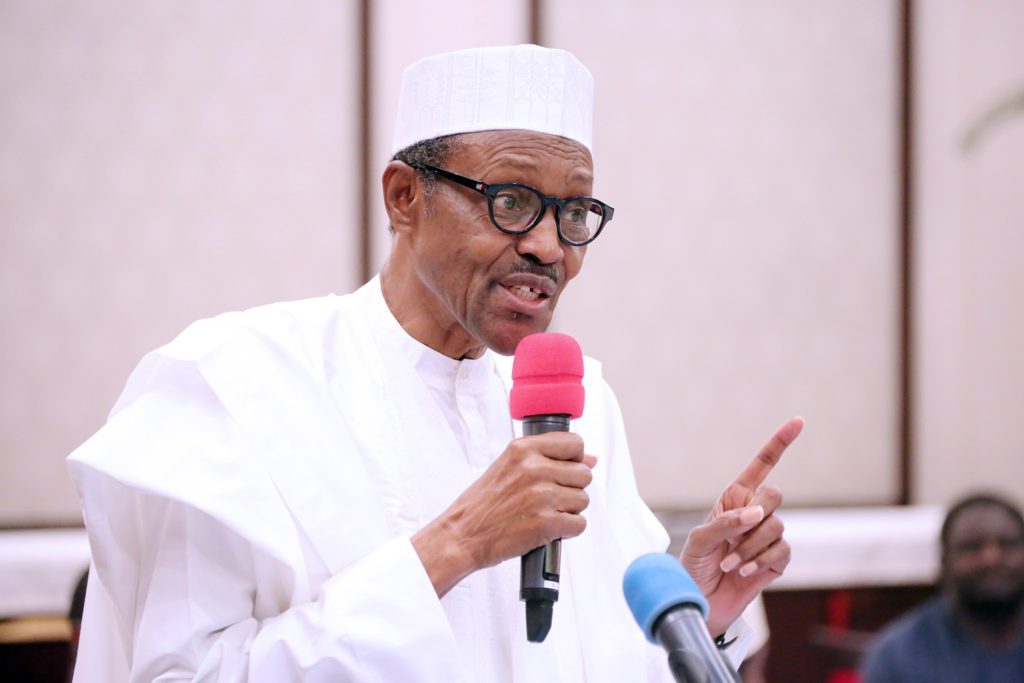President Muhammadu Buhari in his keynote speech at the 2019 Annual Investment Meeting (AIM) in Dubai on Monday, called on world leaders to come up with proposals to create a digital world that is accessible, inclusive and safe to all. The Nigerian President was of the view that a certain level of regulation was needed to preserve the integrity of the digital economy.
Talking on the theme of the summit is: “Mapping the Future of Foreign Direct Investment: Enriching World Economies through Digital Globalization,” the Nigerian President acknowledged that digital globalization is transforming the world almost every day with innovations and transformative ideas, he, however, cautioned that the cyber world would remain a constant threat if left unregulated.
The President condemned the use of the cyberspace to manipulate elections, subvert the democratic rights of citizens as well as propagate violence.
President Buhari lamented the steady rise in fake news and cybercrimes, particularly, when platforms are hijacked and manipulated by criminals.
The President, therefore, called for collective efforts led by both public and private sector leaders to address the emerging threats of digital globalization.
The President used the occasion to reflect on the digital revolution in Nigeria, which he said is buoyed by impressive statistics on mobile phone penetration, technology hubs and the advent of young entrepreneurs attracting investments of over 100 million dollars to the country.
According to Buhari: “In Nigeria, our mobile phone penetration exceeds 80 per cent; This means the majority of Nigeria’s 190 million citizens are fully connected to this new digital world; especially, our youth. 65 per cent or 117 million Nigerians are under the age of 25 years. These bright minds are the drivers of this emerging digital sector…”
President Buhari said that Nigeria is working on creating the largest digital database in Africa, with over 30 million Nigerians and legal residents already captured in the country’s digital identity system.
Also, the President highlighted that Nigeria’s public sector reform programmes, from procurement to payroll to revenue collections, focus on digitizing key operations.

 Entertainment5 days ago
Entertainment5 days ago
 Health1 week ago
Health1 week ago
 Health4 days ago
Health4 days ago
 Football1 week ago
Football1 week ago
 Football1 week ago
Football1 week ago
 Crime4 days ago
Crime4 days ago
 Education6 days ago
Education6 days ago
 Crime1 week ago
Crime1 week ago

